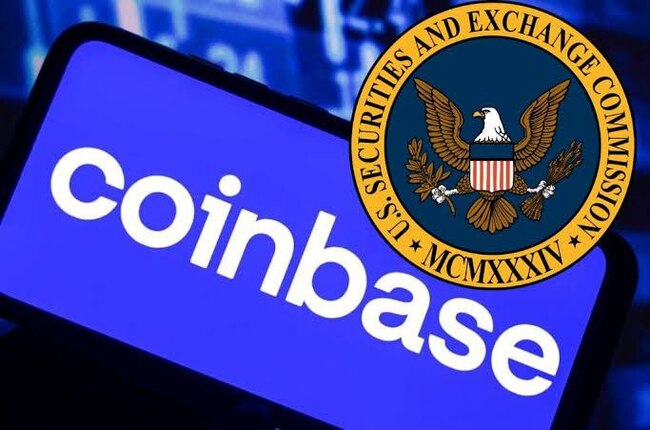Highlights:
- Coinbase’s Paul Grewal urged the SEC to withdraw its rule on DEXs, citing flawed assumptions.
- The SEC’s proposed rule aims to regulate DEXs as traditional exchanges, which Coinbase argues is impractical.
- Coinbase criticized the SEC’s cost-benefit analysis as flawed, lacking information on DEXs’ unique aspects.
Coinbase Chief Legal Officer Paul Grewal urged the US Securities and Exchange Commission (SEC) to withdraw its rule proposal requiring decentralized exchanges (DEXs) to fall under its jurisdiction and to start over. In his letter on Monday, Grewal said the SEC “irrationally assumes” that DEXs can comply in the same way as more traditional exchanges.
🚨 NEWS: @coinbase Urges SEC to Withdraw "Irrational" Rule Targeting Decentralized Exchanges. pic.twitter.com/GmJvMSbb2u
— SolanaFloor (@SolanaFloor) August 12, 2024
SEC’s Expanded Definition of ‘Exchange’ to Include DEXs
Proposed in January 2022 and reopened for comments in April, the rule expands the definition of an exchange to include decentralized platforms. This could require decentralized projects to register as alternative trading systems with the SEC. Grewal emphasized that the rule could hinder innovation and impose unmanageable compliance burdens on DEXs.
SEC Chair Gary Gensler has consistently stated that crypto platforms must register with the agency and that most cryptocurrencies qualify as securities. In April 2023, Gensler noted that most trading platforms, whether centralized or decentralized, fit the definition of an exchange. Moreover, the SEC has charged companies like Coinbase for operating as unregistered exchanges and issued a Wells notice to Uniswap Labs, the creator of the decentralized exchange Uniswap, this year.
Important context for the Bittrex complaint here, especially re intermediaries.
“Whether they call themselves centralized or decentralized” means ‘we believe there are always centralized intermediaries.’ https://t.co/rXo13ipKfa
— Justin Slaughter (@JBSDC) April 17, 2023
Coinbase’s Argument Against Overreaching Regulations for DEXs
In a letter to SEC Secretary Vanessa A. Countryman, Grewal argued that the proposed rule is fundamentally flawed in both design and implementation. He said the Commission’s cost-benefit analysis is inadequate, as it fails to account for DEXs’ unique operational aspects and the potentially severe economic effects of the proposed regulations on the wider crypto market.
Grewal said:
“Among other issues, DEXs cannot comply with registration and disclosure requirements designed for legacy financial exchanges managed by centralized companies.”
Coinbase stressed that the SEC’s proposed expansion of the exchange definition is mainly intended to regulate DEXs that enable the trading of digital assets without a central authority.
The company claims the rule would impose “anachronistic and impossible-to-satisfy requirements” on decentralized crypto exchanges, which could force them to leave the US market. Moreover, the exchange warned that this could stifle innovation and competitiveness in the US financial sector, as developers might move their operations abroad.
Coinbase Highlights Supreme Court Ruling and Information Gaps in SEC Rule Proposal
Coinbase pointed to the recent Supreme Court ruling in Loper Bright Enterprises v. Raimondo, which overturned Chevron deference. The exchange argued that this ruling reduces the chances of courts supporting the SEC’s efforts to apply the Exchange Act to DEXs, particularly since the agency admits it lacks sufficient information about how DEXs function.
The letter criticized the SEC for using cost estimates based on traditional, centralized entities, which Coinbase argued are fundamentally different from decentralized platforms. It pointed out that DEXs, lacking a central authority, cannot meet existing registration and disclosure requirements, making the SEC’s cost assumptions unrealistic and misleading.
Grewal noted that the SEC lacks key information for a proper cost-benefit analysis, such as a clear definition of “crypto-asset security” and the number of exchanges.
He stated:
“It is accordingly impossible to see how the Commission could possibly have discharged its statutory and procedural obligations to regulate in light of the best available information when the Commission admits that on many key issues it has little or no information at all.”
Coinbase is urging the SEC to withdraw the proposed rule and carefully assess its economic impact before taking further action. Moreover, the company warned that the rule could drive DEXs out of the US, depriving American users of the benefits of decentralized finance, like better transparency and lower costs.





